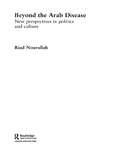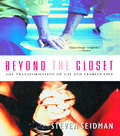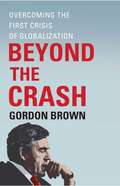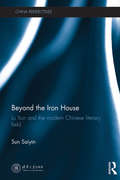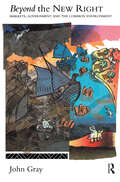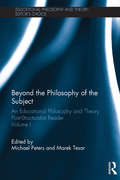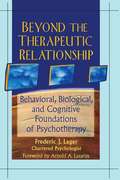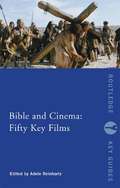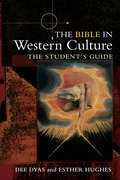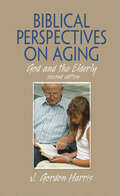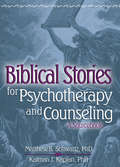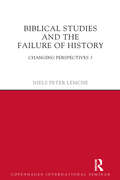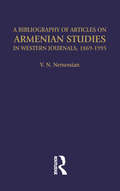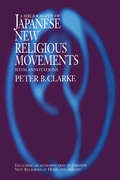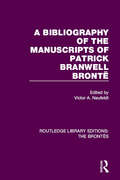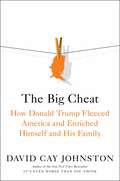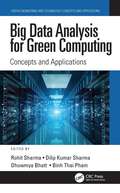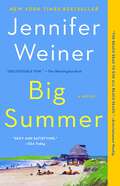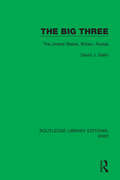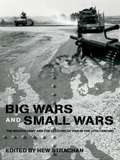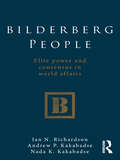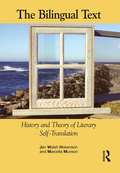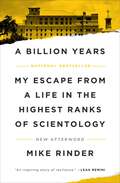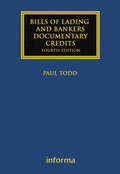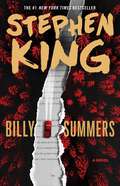Special Collections
Benetech’s Global Certified Accessible Titles
Description: Benetech’s GCA program is the first independent third-party EPUB certification to verify ebook accessibility. By creating content that is born accessible, publishers can meet the needs of all readers. Learn more: https://bornaccessible.benetech.org/
- Table View
- List View
Beyond the Arab Disease
by Riad NourallahPresenting bold and original insights, this book examines the policies and diplomacies pursued by Arab and Western governments, while discussing both the political and cultural roles played by the modern Arab World. It explores the various facets of the malaise affecting the Arab world, stressing the urgent call for reform and recovery, as well as the need to address major issues including inter-Arab affairs, relations with a hegemonic USA, and peace with Israel. In addition, the book provides new perspectives on a range of topics including Arab and Muslim diplomacy, literature, and culture; often as these interact with Western models and paradigms in an increasingly interconnected but challenging world. Employing a combination of disciplines and discourses, the book aids learners and policy-makers in better understanding the Arab world’s successes and failures in its problematic relations with the West and modernity.
Beyond the Closet
by Steven SeidmanGay life has become increasingly open in the last decade. In Beyond the Closet , Steven Seidman, a well-known author and leading scholar in sexuality, is the first to chronicle this lifestyle change and to look at the lives of contemporary gays and lesbians to see how their "out" status has changed. This compelling, well-written, and smart account is an important step forward for the gay and lesbian community.
Beyond the Crash
by Gordon BrownThe international financial crisis that has held our global economy in its grip for too long still seems to be in full stride. Former British Prime Minister and Chancellor of the Exchequer Gordon Brown believes the crisis can be reversed, but that the world’s leaders must work together if we are to avoid a decade of lost jobs and low growth. Brown speaks both as someone who was in the room driving discussions that led to some crucial decisions and as an expert renowned for his remarkable financial acumen. No one who had Brown’s access has written about the crisis yet, and no one has written so convincingly about what the global community must do next in order to climb out of this abyss. Brown outlines the shocking recklessness and irresponsibility of the banks that he believes contributed to the depth and breadth of the crisis. As he sees it, the crisis was brought on not simply by technical failings, but by ethical failings too. Brown argues that markets need morals and suggests that the only way to truly ensure that the world economy does not flounder so badly again is to institute a banking constitution and a global growth plan for jobs and justice. Beyond the Crash puts forth not just an explanation for what happened, but a directive for how to prevent future financial disasters. Long admired for his grasp of economic issues, Brown describes the individual events that he believes led to the crisis unfolding as it did. He synthesizes the many historical precedents leading to the current status, from the 1933 London conference of world leaders that failed to resolve the Great Depression to the more recent crash in the Asian housing market. Brown’s analysis is of paramount importance during these uncertain financial times. As Brown himself said of his ideas for the future, “We now live in a world of global trade, global financial flows, global movements of people, and instant global communications. Our economies are connected as never before, and I believe that global economic problems require global solutions and global institutions. In writing my analysis of the financial crisis, I wanted to help explain how we got here, but more important, to offer some recommendations as to how the next stage of globalization can be managed so that the economy works for people and not the other way around.”## ***The crisis exposed the contradiction of globalization itself: as economies have become more interconnected, regulators and governments have failed to keep pace and increase coordination. It is a failure intrinsic to unregulated global markets, an instability that resulted from the manner in which increasing flows of capital around the world happened and impacted the economy. And it is a failure of collective action at an international level to respond quickly enough to the structural imbalances and inequities that arose. At its simplest, then, this is the first true crisis of globalization. For the first time everybody, from the richest person in the richest city to the poorest person in the poorest slum, was affected by the same crisis. Although its roots are global, its impact is local, directly felt on nearly every main street, on nearly every shop floor, around nearly every kitchen table. Billions of people around the world are in need of and are demanding a better globalization. It is the nature of power that you always leave tasks unfinished when you leave office. It is the nature of politics that the argument must continue. This book is my warning of a decade of lost growth and my answer to that fear with a call for a better globalization. It is an explanation of a pattern in the numbers that points to an enormous opportunity to alleviate poverty, create jobs, and grow. A future of low growth, high unemployment, decline, and decay is not inevitable; it’s about the change we choose. -- From Beyond the Crash
Beyond the Iron House
by Saiyin SunBeyond the Iron House is a critical study of a crucial period of life and work of the modern Chinese writer Lu Xun. Through thorough research into historical materials and archives, the author demonstrates that Lu Xun was recognized in the literary field much later than has hitherto been argued. Neither the appearance of "Kuangren riji" (Diary of a madman) in 1918 nor the publication of Nahan (Outcry) in 1923 had catapulted the author into nationwide prominence; in comparison with his contemporaries, neither was his literary work as original and unique as many have claimed, nor were his thoughts and ideas as popular and influential as many have believed; like many other agents in the literary field, Lu Xun was actively involved in power struggles over what was at stake in the field; Lu Xun was later built into an iconic figure and the blind worship of him hindered a better and more authentic understanding of many other modern writers and intellectuals such as Gao Changhong and Zhou Zuoren, whose complex relationships with Lu Xun are fully explored and analysed in the book.
Beyond the New Right
by John GrayJohn Gray is now established as one of the UK's leading political thinkers. For over a decade he has been asssociated with the ideas and think-tanks of the New Right. In this book he presents both a criticism of the ideological excesses of New Right ideology and a radical critique of the New Right itself, developed from the standpoint of traditional conservatism.All the major thinkers and themes of the New Right are examined, together with many major issues of current public policy - such as the growth of the underclass, the future of the welfare state and the role of government in education and culture. The author also argues that there are deep affinities between conservative ideology and Green thought. He advances radical proposals for the preservation and renewal of common life for an age in which the ideals of modernism, including continuous economic growth, are decreasingly viable. He expresses his conviction that conservative philosophy will find its future in dissociating itelf from the neo-liberalism that has lately dominated policy, and returning to the task of redefining traditional values.
Beyond the Philosophy of the Subject
by Michael A Peters and Marek TesarThis first volume focuses on a collection of texts from the latter twenty years of Educational Philosophy and Theory, selected for their critical status as turning points or important awakenings in post-structural theory. In the last twenty years, the applications of the postmodern and poststructuralist perspectives have become less mono-focused, less narrowly concerned with technical questions and also less interested in epistemology, and more interested in ethics. This book covers questions of genealogy, ontology, the body and the institution, giving examples of theoretical applications of post-structural theory that testify to the generative and endlessly applicable potential of this work to different fields and avenues of thought. While informed by Foucault's thinking of the political subjugation of docile bodies to individuals as self-determining beings, the chapters in this book culminate in amalgamations of different schools of educational philosophy, which explore poststructuralist approaches to education. Beyond the Philosophy of the Subject will be key reading for academics, researchers and postgraduate students in the fields of philosophy of education, philosophy, education, educational theory, post-structural theory, the policy and politics of education, and the pedagogy of education.
Beyond the Therapeutic Relationship
by Frederic J LegerSeeking to transfer knowledge across ideological boundaries within a theoretically valid, scientific framework, Beyond the Therapeutic Relationship draws upon and relates existing research from psychotherapy and the allied fields of human behavior. Author Frederic J. Leger has successfully cut across multifarious therapies to create an integrated, high-order theory that unites psychotherapy’s disparate forces. In the process, he addresses the theoretical underpinnings of the field of psychotherapy, the paradigm of the therapeutic relationship and its centrality to therapeutic change, the difficulties of creating a “scientific discipline” from the study of the psyche, and the factionalization of psychology into different competing schools.By exploring universal variables and how they fit into a causal nexus, Beyond the Therapeutic Relationship identifies transtheoretical processes of change that cut across diverse therapies. It also offers heuristic research direction and guidance in eclectic and integrative practice as it broadens the perspective on the psychotherapeutic encounter. Combining physiological, social, and psychological research into a transtheoretical psychodynamic theory, this important text discusses: why the need for paradigmatic direction is urgent bringing nonverbal variables to the therapist’s working awareness or focus how a small range of conceptual possibilities limits knowledge of human behavior the lack of efficacy in psychotherapy the psychobiological significance of intensive experiential exploration formation of the “self” through language and discourse integrative eclecticism within transtheoretical and common factors integrationPsychologists, psychiatrists, mental health therapists, and academics and students in psychology, psychiatry, and educational psychology now have a text that cuts across the multitude of therapeutic approaches to provide a theory that is empirically supported and grounded in the author’s 25 years of clinical practice. As you will see, Beyond the Therapeutic Relationship discusses the current position of the field of psychotherapy, where it needs to go, specific strategies for getting there as well as alternative interventions beyond empathy and the therapeutic relationship.
Bible and Cinema
by Adele ReinhartzMovies which have drawn inspiration from the Bible, either directly or indirectly, have been extremely popular since the earliest days of cinema. Bible and Cinema: Fifty Key Films introduces a wide range of those movies, which are among the most important, critically-acclaimed and highest-grossing films of all time, including: The King of Kings Ben-Hur The Passion of the Christ Frankenstein Close Encounters of the Third Kind 2001: A Space Odyssey Apocalypse Now Monty Python’s Life of Brian. Written by a team of international scholars, the fifty entries discuss the Biblical stories, characters or motifs depicted in each film making this book the ideal guide for anyone interested in the long-standing relationship between the Bible and film.
The Bible in Western Culture
by Dee Dyas and Esther HughesThe influence of the Bible in Western culture is immeasurable, but these days few of us know much about it. Presenting concise and accessible introductions to the Bible's most important characters, stories and themes, this text encourages better understanding, study and analysis of the Christian element in Western culture. With no prior biblical knowledge required, this clearly presented volume delivers a framework of understanding for those studying Western literature, art, historical events, or for those simply wanting to improve their general knowledge. Filling a gap in the market for an introductory text of this kind, this genuinely multi-disciplinary book provides: * edited extracts from the Bible* explanations of the context and beliefs of each passage* links to related biblical texts* examples of related key works of art and literature * brief biographies of key figures* a comprehensive glossary defining specialist terms* chronology* suggested further reading. Enabling readers to encounter key Bible stories directly, the book also provides useful background information on issues of content, context and influence. Easy to use and follow, it is the essential guide for those wishing to find out more about the Bible and its impact on the world around us.
Biblical Perspectives on Aging
by J. Gordon HarrisAs the population of older Americans grows, meaningful perspectives on aging are needed by both the young and the old. Biblical Perspectives on Aging: God and the Elderly takes a detailed look at the views of aging presented in the Old and New Testaments. This wide ranging and insightful survey encompasses not only the entire Bible but also interpretations of sacred Middle Eastern and Judaic documents. This new expanded edition of the original classic text adds thorough discussions of the wisdom of the Bible and Jewish literature with ways to interpret these readings and what they teach about spirituality and growing older.Approaches to aging issues have changed in recent years. With the average American lifespan increasing, the view of old age as a solitary time of waiting has been pushed aside. So too has the assumption that the elderly simply want to remember “the good old days.” This updated edition of Biblical Perspectives on Aging: God and the Elderly has expanded its scope to incorporate and address the effects of these changing views. This sweeping study of the Bible’s positive treatment of aging and elderly figures sheds new light on contemporary society’s negative view of the elderly and what can be done about it. Clear examples from both Scripture and literature provide a wealth of understanding, comfort, and wisdom to everyone interested in aging and the Bible. In addition, this new edition explores the changing relationships that exist among aging, hermeneutics, mentoring, and spirituality. The new insights revealed here reinvigorate the challenge against ageism and traditional pictures of old age as a time of withdrawal and living in the past.Among the issues explored in Biblical Perspectives on Aging: God and the Elderly are aging experiences and the Bible, biblical theology and its role in social support for the elderly, hermeneutics and old age, spirituality and its relationship to aging, cross-generational relationships and mentoring, and a detailed index of Old and New Testament Scripture references.Accessible and concise, with compelling arguments and numerous examples, Biblical Perspectives on Aging: God and the Elderly is an ideal resource for pastors, seminary students, professionals, and leaders of programs for the elderly. It shows both young and old that while aging may not be easy, Biblical theology can ease some of its mystery.
Biblical Stories for Psychotherapy and Counseling
by Kalman Kaplan and Matthew SchwartzIntegrate Biblical spirituality into psychotherapy and examine centuries-old answers to modern psychological questions! The Joint Commision on the Accreditation of Hospitals now mandates taking spiritual assessments of all patients. This book is devoted to helping therapists employ Biblical spirituality in the actual treatment program. Biblical Stories for Psychotherapy and Counseling: A Sourcebook organizes the wisdom of the Old Testament into episodes that can shed light on specific psychological issues. From the familiar to the obscure, these stories can help us better understand self-esteem, loyalty and obligations, decision making, temptation, anger, morality, various disorders, family dynamics, support systems, developmental issues, recovery issues, aging, suicidal behavior, and more. From the authors: As brilliant and as penetrating as Freud's insights are, they are limited in the sense that Freud relied heavily on Greek myth and literature for his models and ideas. His view of man was in many ways that of the Greeksa view that concentrated on the pathological underside of man and on the bedrock of his developmental problems. The Greeks could never really shake the sense of doom, the foreboding and the fatalism that led so many great figures in Greek literature and in real life Greek history to depression and, in a surprising number of cases, to suicide. In contrast, the focus of the Bible is far more optimistic; depression can be successfully dealt with, and suicide is a sad error that should beand usually can beavoided. It encourages people to hope and teaches that day-to-day human effort has a purpose and meaning and that heroism is not a fair or useful aim for man to set for himself. The Bible offers the hope of filling every moment of human life with greater meaning and feeling. New solutions to mental health problems are always welcome. Ours is a new approach, yet a very old one. We present stories that offer a vast treasure of knowledge and wisdom about the way people think and act, and why they do so. The stories are drawn from the Hebrew Bible, a compendium whose latest books are already twenty-four hundred or so years old. Yet, through all those centuries, the basic story of man's searching and yearning has changed little. We shall concentrate on the psychological meaning of these narratives and what they tell us about how their characters dealt with challenges of family, handicap, depression, and more. You'll also find information drawn from modern clinical research that parallels the Biblical narratives. The wisdom gained from these ancient stories is applied to help people gain self-understanding and deal with their own situations today. For psychotherapists, these Biblical foundation stories can be used as a basis for integrating spirituality into psychotherapy. The story of Moses, who overcame a speech problem, can be applied to the problems of a Midwestern college student, and the account of David and Goliath can help a businessman overcome his fears of lack of macho. A small sample of the Bible storiesand their clinical implicationsthat you'll find in this volume: the foundation of self-esteem: Saul the courage to emigrate: Abraham assuming responsibility for one's self: Lot's wife focusing on one's main aim: Sarah and Hagar dealing with commandments: Abraham and Isaac dealing with temptations: Adam and Eve drunkenness and disrespect: Noah reciprocity between generations: Naomi and Ruth amoral intellectualism: Balaam aging: Ecclesiastes dealing with disability: Moses and Aaron abandonment: David protected regression: Jonah Biblical Stories for Psychotherapy and Counseling: A Sourcebook will become a well-used reference in your professional/teaching collection. These Biblical stories will be helpful to therapists, cle
Biblical Studies and the Failure of History
by Niels Peter LemcheFirst published in 1986. Routledge is an imprint of Taylor & Francis, an informa company.
A Bibliography of Articles on Armenian Studies in Western Journals, 1869-1995
by Vrej N Nersessian and Vrej N. NersessianCovers a comprehensive range of periodicals - well over 165 in all.
Bibliography of Japanese New Religious Movements
by Peter B ClarkeContaining some 1500 entries, this new bibliography will be widely welcomed for its comprehensive brief, and for the sub-section profiling principal NRMs convering history, beliefs and practices, main publications, braches worldwide and membership.
A Bibliography of the Manuscripts of Patrick Branwell Brontë
by Victor A. NeufeldtThis bibliography, first published in 1993, attempts to provide a complete and accurate description of the manuscripts of Patrick Branwell Brontë, excluding his letters. Its aim is not only to correct previous errors and update and extend earlier lists, but also to reconstruct as far as possible dismembered and scattered manuscripts. This book will be of interest to students of English Literature.
The Big Cheat
by David Cay JohnstonPulitzer Prize–winning reporter and dean of Trumpologists David Cay Johnston reveals years of eye-popping financial misdeeds by Donald Trump and his family.While the world watched Donald Trump&’s presidency in horror or delight, few noticed that his lifelong grifting quietly continued. Less than forty minutes after taking the oath of office, Trump began turning the White House into a money machine for himself, his family, and his courtiers. More than $1.7 billion flowed into Donald Trump&’s bank accounts during his four years as president. Foreign governments rented out whole floors of his hotel five blocks from the White House while lobbyists conducted business in the hotel&’s restaurants. Payday lenders and other trade groups moved their annual conventions to Trump golf resorts. And individual favor seekers joined his private Mar-a-Lago club with its $200,000 admission fee in hopes of getting a few minutes with the President. Despite earning more than $1 million every day he was in office, Trump left the White House as he arrived—hard up for cash. More than $400 million in debt comes due by 2024, and Trump still lacks the resources to pay it back. The Big Cheat takes you on a guided tour of how money flowed in and out of Trump&’s hundreds of enterprises, showing in simple terms how his family and courtiers used his presidency to enrich themselves, even putting national security at risk. Johnston details the four most recent years of the corruption that has defined the Trump family since 1885 and reveals the costs of Trump&’s extravagant lifestyle for American taxpayers.
Big Data Analysis for Green Computing
by Rohit SharmaThis book focuses on big data in business intelligence, data management, machine learning, cloud computing, and smart cities. It also provides an interdisciplinary platform to present and discuss recent innovations, trends, and concerns in the fields of big data and analytics. Big Data Analysis for Green Computing: Concepts and Applications presents the latest technologies and covers the major challenges, issues, and advances of big data and data analytics in green computing. It explores basic as well as high-level concepts. It also includes the use of machine learning using big data and discusses advanced system implementation for smart cities. The book is intended for business and management educators, management researchers, doctoral scholars, university professors, policymakers, and higher academic research organizations.
Big Summer
by Jennifer WeinerA deliciously funny, remarkably poignant &“beach read to end all beach reads&” (Entertainment Weekly) about the power of friendship, the lure of frenemies, and the importance of making peace with yourself through all of life&’s ups and downs—from the #1 New York Times bestselling author of Good in Bed and Best Friends Forever.Six years after the fight that ended their friendship, Daphne Berg is shocked when Drue Cavanaugh walks back into her life, looking as lovely and successful as ever, with a massive favor to ask. Daphne hasn&’t spoken one word to Drue in all this time—she doesn&’t even hate-follow her ex-best friend on social media—so when Drue asks if she will be her maid-of-honor at the society wedding of the summer, Daphne is rightfully speechless. Drue was always the one who had everything—except the ability to hold onto friends. Meanwhile, Daphne&’s no longer the same self-effacing sidekick she was back in high school. She&’s built a life that she loves, including a growing career as a plus-size Instagram influencer. Letting glamorous, seductive Drue back into her life is risky, but it comes with an invitation to spend a weekend in a waterfront Cape Cod mansion. When Drue begs and pleads and dangles the prospect of cute single guys, Daphne finds herself powerless as ever to resist her friend&’s siren song. A sparkling, &“insightful page-turner&” (Real Simple) about the complexities of female relationships, the pitfalls of living out loud and online, and the resilience of the human heart, Big Summer is a witty, moving story about family, friendship, and figuring out what matters most.
The Big Three
by David J. DallinThis book, first published in 1946, analyses the state of the world at the close of the Second World War. Global power was passing from Britain to the United States and the Soviet Union, with the US being involved in every part of the world, Russia dominant in eastern Europe and the world looked a very uncertain place. This survey of the main three powers examines their changing conditions and foreign policies.
Big Wars and Small Wars
by Hew StrachanThis is a fascinating new insight into the British army and its evolution through both large and small scale conflicts. To prepare for future wars, armies derive lessons from past wars. However, some armies are defeated because they learnt the wrong lessons, fighting new conflicts in ways appropriate to the last. For the British Army in the twentieth century, the challenge has been particularly great. It has never had the luxury of emerging from one major European war with the time to prepare itself for the next. The leading military historians show how ongoing commitments to a range of ‘small wars’ have always been part of the Army’s experience. After 1902 and after 1918 they included colonial campaigns, but they also developed into what we would now call counter-insurgency operations, and these became the norm between 1945 and 1969. During the height of the Cold War, in 1982, the Army was deployed to the Falklands. Since 1990 the dominant tasks of the Army have been peace support operations. This is an excellent resource for all students and scholars of military history, politics and international relations and British history.
Bilderberg People
by Ian Richardson and Andrew Kakabadse and Nada KakabadseBilderberg People explores the hidden mechanisms of influence at work in the private world, and personal interactions, of the transnational power elite. It is not concerned with conspiracy theories; instead it is about certain fundamental forces that shape the world in which we live. These forces, with their power to bring about transitions in emotion and preference within, and beyond, the elite community have potentially profound implications for all of us. Through exclusive interviews with attendees of the most prestigious of all informal transnational networks – Bilderberg – this book provides a unique insight into the networking habits and motivations of the world’s most powerful people. Moreover, it demonstrates that elite consensus is not simply a product of collective common sense among the elite group; rather, it is a consequence of subtle power relationships within the elite circle. These relationships, which are embedded in the very fabric of elite institutions and interactions, result in a particular brand of enlightened thinking within the elite community. This exciting new volume sheds light for the first time on the critical question of who runs the world and why they run it the way they do.
The Bilingual Text
by Jan Walsh Hokenson and Marcella MunsonBilingual texts have been left outside the mainstream of both translation theory and literary history. Yet the tradition of the bilingual writer, moving between different sign systems and audiences to create a text in two languages, is a rich and venerable one, going back at least to the Middle Ages. The self-translated, bilingual text was commonplace in the mutlilingual world of medieval and early modern Europe, frequently bridging Latin and the vernaculars. While self-translation persisted among cultured elites, it diminished during the consolidation of the nation-states, in the long era of nationalistic monolingualism, only to resurge in the postcolonial era. The Bilingual Text makes a first step toward providing the fields of translation studies and comparative literature with a comprehensive account of literary self-translation in the West. It tracks the shifting paradigms of bilinguality across the centuries and addresses the urgent questions that the bilingual text raises for translation theorists today: Is each part of the bilingual text a separate, original creation or is each incomplete without the other? Is self-translation a unique genre? Can either version be split off into a single language or literary tradition? How can two linguistic versions of a text be fitted into standard models of foreign and domestic texts and cultures? Because such texts defeat standard categories of analysis, The Bilingual Text reverses the usual critical gaze, highlighting not dissimilarities but continuities across versions, allowing for dissimilarities within orders of correspondence, and englobing the literary as well as linguistic and cultural dimensions of the text. Emphasizing the arcs of historical change in concepts of language and translation that inform each case study, The Bilingual Text examines the perdurance of this phenomenon in Western societies and literatures.
A Billion Years
by Mike RinderOne of the highest-ranking defectors from Scientology exposes the secret inner workings of the powerful organization in this remarkable memoir.Mike Rinder&’s parents began taking him to their local Scientology center when he was five years old. After high school, he signed a billion-year contract and was admitted into Scientology&’s elite inner circle, the Sea Organization. Brought to founder L. Ron Hubbard&’s yacht and promised training in Hubbard&’s most advanced techniques, Mike was instead put to work swabbing the decks. Still, Rinder bought into the doctrine that his personal comfort was secondary to the higher purpose of Hubbard&’s world-saving mission, swiftly rising through the ranks. In the 1980s, Rinder became Scientology&’s international spokesperson and the head of its powerful Office of Special Affairs. He helped negotiate Scientology&’s pivotal tax exemption from the IRS and engaged with the organization&’s prominent celebrity members, including Tom Cruise, Lisa Marie Presley, and John Travolta. Yet Rinder couldn&’t shake a nagging feeling that something was amiss—Hubbard&’s promises remained unfulfilled at his death, and his successor, David Miscavige, was a ruthless and vindictive man who did not hesitate to confine many top Scientologists, Mike among them, to a makeshift prison known as the Hole. In 2007, at the age of fifty-two, Rinder finally escaped Scientology. Overnight, he became one of the organization&’s biggest public enemies. He was followed, hacked, spied on, and tracked. But he refused to be intimidated and today helps people break free of Scientology. In A Billion Years, the dark, dystopian truth about Scientology is revealed as never before. Rinder offers insights into the religion that only someone of his former high rank could provide and tells a harrowing but fulfilling story of personal resilience.
Bills of Lading and Bankers' Documentary Credits
by Paul ToddBills of Lading and Bankers’ Documentary Credits provides a straightforward guide to the nuances and complexities of deals conducted under the documentary credit system. The book describes in detail the law applicable to and the practical workings of bankers' documentary credits as they are used in international sales and carriage of goods contracts in a way that is accessible to both lawyers and to businessmen who have to use these contracts on a day-to-day basis. In its fourth edition, Bills of Lading and Bankers’ Documentary Credits has been completely updated to take account of recent case law and developments including the UCP 600 as well as progress in electronic and other documentation since the last edition.
Billy Summers
by Stephen KingMaster storyteller Stephen King, whose &“restless imagination is a power that cannot be contained&” (The New York Times Book Review), presents an unforgettable and relentless #1 New York Times bestseller about a good guy in a bad job.Chances are, if you&’re a target of Billy Summers, two immutable truths apply: You&’ll never even know what hit you, and you&’re really getting what you deserve. He&’s a killer for hire and the best in the business—but he&’ll do the job only if the assignment is a truly bad person. But now, time is catching up with him, and Billy wants out. Before he can do that though, there&’s one last hit, which promises a generous payday at the end of the line even as things don&’t seem quite on the level here. Given that Billy is among the most talented snipers in the world, a decorated Iraq war vet, and a virtual Houdini when it comes to vanishing after the job is done, what could possibly go wrong? How about everything. Part war story and part love letter to small-town America and the people who live there, this spectacular thriller of luck, fate, and love will grip readers with its electrifying narrative, as a complex antihero with one last shot at redemption must avenge the crimes of an extraordinarily evil man. You won&’t ever forget this stunning novel from master storyteller Stephen King…and you will never forget Billy.
